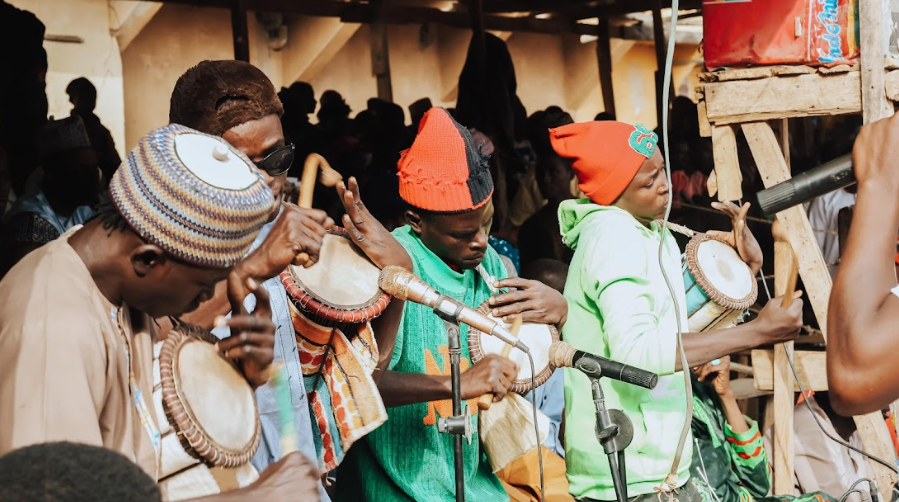Dambe is more than a fight—it’s a celebration of culture, honor, and identity. Every match is surrounded by traditional rituals that give the sport its soul and connect modern fighters to generations of warriors before them.
Before a Dambe match begins, the arena fills with drumming and chants. These aren’t just for entertainment—they are spiritual signals that set the tone and sharpen the fighters’ focus. The rhythm moves the crowd and connects everyone to the roots of Hausa tradition.
Fighters often wear charms or amulets for protection, and many participate in private rituals passed down from elders or coaches. Some scar their striking arms and rub in herbal salves believed to enhance power or defense.
Even the terms used in Dambe—like “spear” for the wrapped striking hand and “shield” for the defensive hand—are drawn from the language of warfare. It’s a reminder that Dambe was once preparation for real battle, and that fighting is both physical and symbolic.
These rituals are what make Dambe special. They preserve the past, give meaning to each strike, and remind fighters and fans that Dambe is more than a sport—it’s a cultural ceremony. When you watch Dambe, you’re witnessing history in motion.



